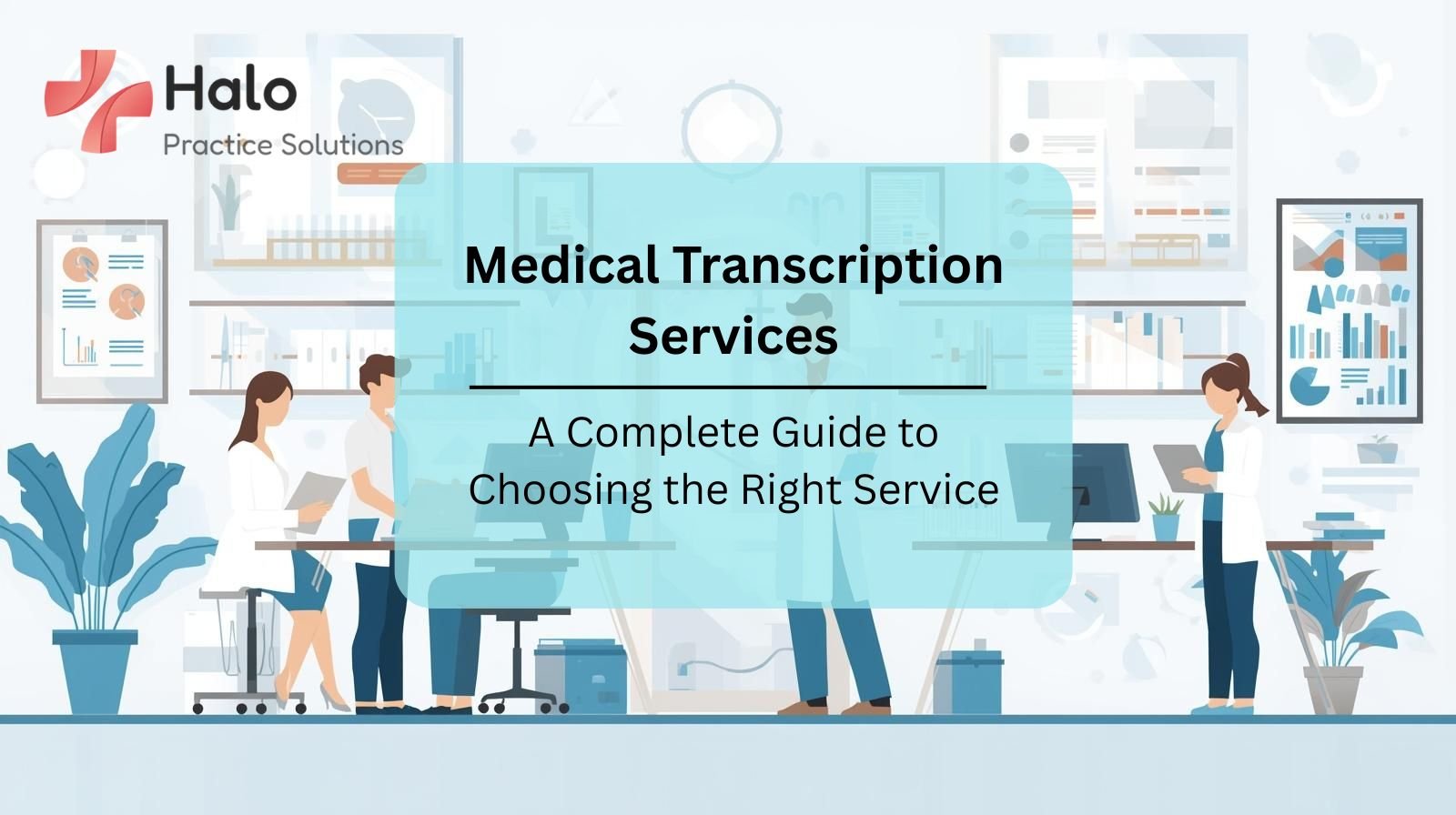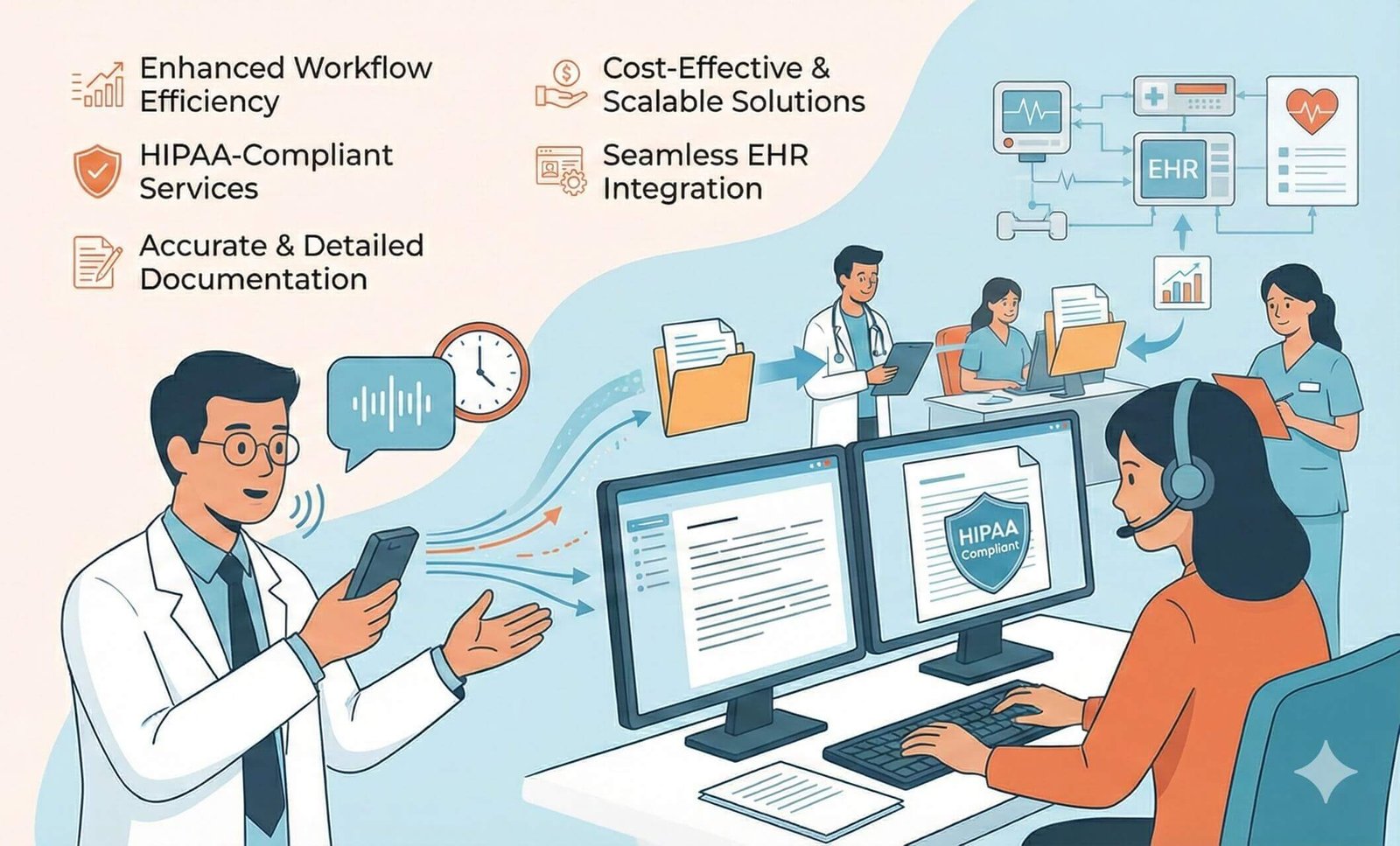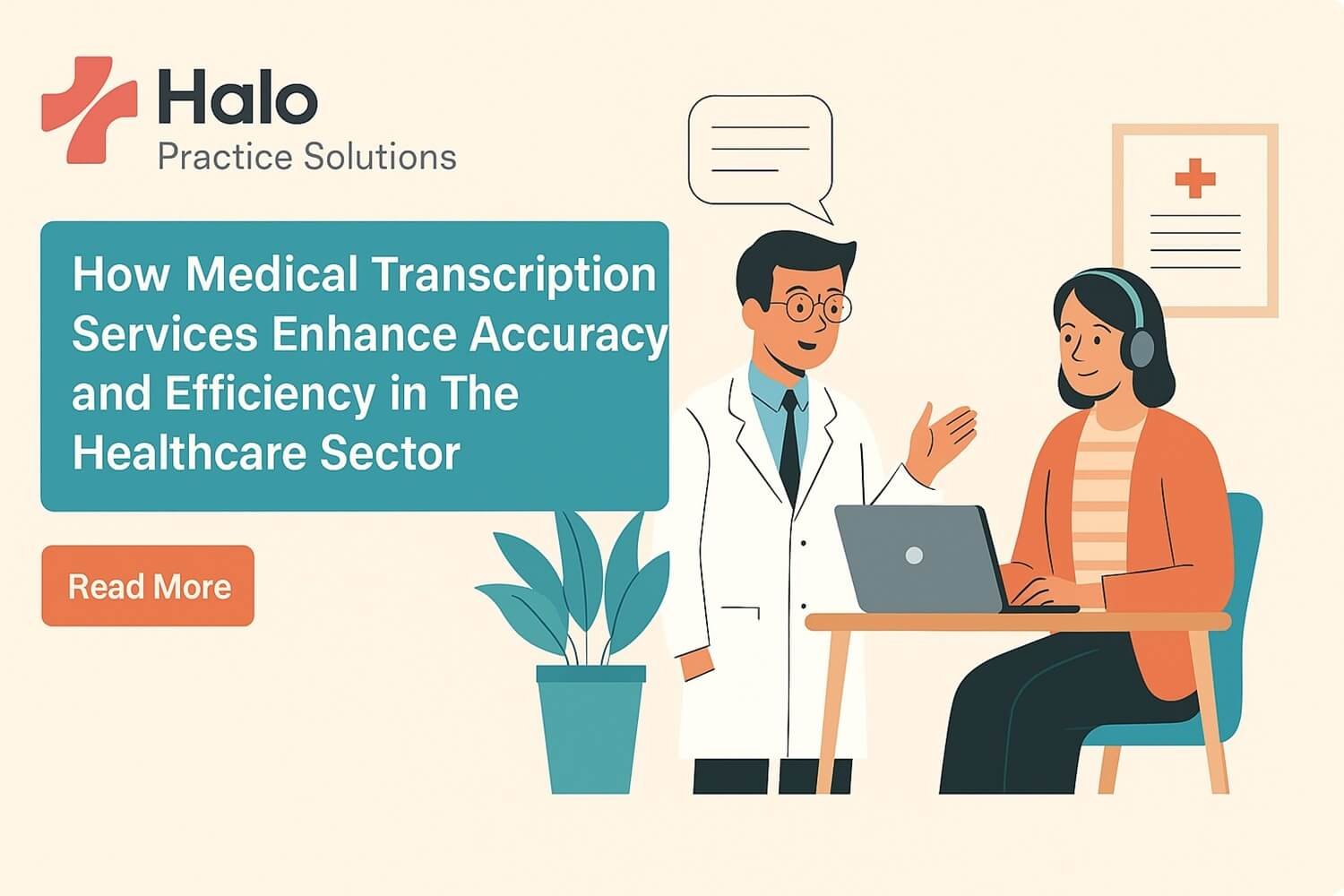Is this challenging to maintain clinical documentation while managing patient load? If that is the case, then in this advanced and technological world, how do you ensure that all your records are accurate and up-to-date? Do you also believe that medical records are primarily used to deliver qualitative care, treatment, billing, and ensure all legal compliance? It is when a professional support for medical transcription services comes into the picture. As this service can transform any dictated note into a well-organized document or report, you will be able to reduce all administrative burden, even during heavy workflow. However, the game is only designed to determine the best professionals for the same practice. If you delve deeper into this guide, you will find all the related information that can help you make an informed decision.
The Basics of Medical Transcription Services: From Voice to Document
Medical transcription involves converting voice-recorded clinical notes into written, formatted medical documents, commonly referred to as Reports. Using dictation, physicians and other healthcare providers review patient information recorded by a medical transcriptionist and use that information to construct their medical records. The workflow typically comprises the following three components:
- Dictation: Providers dictate notes from a patient experience via a digital recorder or dictation software application.
- Transcription: Qualified transcriptionists listen to the audio and transcribe it into structured medical documentation.
- Integration: Once transcripts are finalized, they are reviewed, approved, and integrated into the electronic health record (EHR) system.
The process ensures that all aspects of a patient interaction are documented, ensuring care continuity, legal compliance, and administrative efficiencies in clinical settings.
Why Medical Transcription Still Matters in 2025
With the rise of EHRs and voice recognition tools, some practices may wonder whether traditional transcription services are still relevant. However, these technologies often fall short in terms of accuracy and context.
Voice-to-text software can misinterpret medical terminology, dialects, or accents, leading to documentation errors. Editing such output consumes valuable time for physicians. However, human transcriptionists provide contextual understanding, fluency in medical language, and the ability to reflect subtleties that software often fails to capture.
In 2025, medical transcription services will continue to play a key role in reducing errors, enhancing the quality of documentation, and enabling physicians to spend more time with patients.
Important Factors to Choose a Healthcare Transcription Solution
Accuracy and Quality Processes
Accuracy is paramount in healthcare documentation practices. A provider should have quality assurance processes in place, coupled with a multi-tiered review process, and an accuracy rate of greater than 99%. Transcriptionists with extensive experience in different specialties will recognize the more complex terms and provide a level of reliability and consistency.
Turnaround Time
Timely documentation leads to quicker diagnosis, treatment, and billing. A provider with turnaround times of 12 to 24 hours, offering options for immediate assistance on urgent matters, may be a good choice.
HIPAA Compliance and Data Handling
Any transcription provider must be compliant with the standards dictated by HIPAA. Data must be encrypted both during transmission and while being stored. Staff must have training in handling sensitive information.
Specialty Knowledge
All specialties have their own terminology and documentation standards. A reputable transcription provider will have experience with various specialties, including cardiology, radiology, psychiatry, internal medicine, and others.
Technology and EHR Flexibility
The best medical transcription service will seamlessly integrate into your workflow. Look for dictation options that fit your needs and allow seamless uploads to EHR to ease the administrative burden.
All Pricing is Flexible
Pricing should be transparent and scalable. Some providers charge a per-line, per-minute, or per-report fee. Whatever model you choose should align with the size of your practice, your budget, and expectations, free of hidden costs.
Support and Ability to Customize
Support, accountability, and customization by your provider become necessary. Your provider should adjust formatting, dictation options, and turnaround times to meet your practice’s specific needs.
Typical Challenges Associated with Not Having a Good Transcription Partner:
When the transcription process slows down or begins to include errors, it can cause significant ramifications for practice. Some of the common challenges can be:
- Administrative burden on physicians and staff
- Incorrect patient records can lead to the risk of misdiagnosing patients
- Increased potential for physician burnout (excessive documentation work)
- Delayed billing or insurance claims that would otherwise affect cash flow
A good transcription provider provides consistency and speed in the documentation process, thereby limiting these issues.
Benefits of Outsourcing Medical Transcription
Outsourcing medical transcription services brings several advantages:
- Time and cost savings by replacing in-house transcription staff with one.
- Access to skilled professionals with specific knowledge of the medical specialties.
- More time to devote to patient care and decreased physician burnout.
- Scalability to handle fluctuating volumes.
How to Evaluate a Medical Transcription Vendor
Before you pick a vendor, ask:
- What is your average accuracy rate?
- What is your turnaround time for standard and urgent files?
- How do you ensure HIPAA compliance and data security?
- Do you have experience in my medical specialty?
- What are your pricing models and terms of service?
Comparing vendors based on these questions will help ensure you select the right partner for your documentation needs.
Boosting Efficiency through Correct Documentation
Making the wise choice for medical transcription services will significantly enhance your practice, improve documentation accuracy, compliance, and workflow efficiencies. Halo Practice Solutions has developed secure, scalable solutions to meet your needs. Streamline your workflow and refocus on patient care—partner with Halo for trusted transcription support.
Empower your practice by simplifying your documentation process with reliable, secure, and accurate medical transcription services, and enhance efficiency and patient outcomes.
Contact Halo Practice Solutions today for a personalized consultation. Phone: 281-721-9161, Email: info@halopracticesolutions.com
Frequently Asked Questions
What audio file formats does Halo Practice Solutions support?
We support MP3, WAV, M4A, and DSS, as well as the most common formats, for seamless onboarding with our medical transcription services.
How does Halo ensure confidentiality and data security?
Our medical transcription services are HIPAA-compliant, featuring encrypted file transfers and trained personnel who handle all patient data securely.
Can transcriptions be integrated into my EHR system?
Yes, Halo Practice Solutions offers seamless integration with most EHR systems or can assist with manual uploads.
Do Halo’s transcriptionists understand medical specialties?
Yes, our transcriptionists are trained across various specialties to ensure accurate, context-specific documentation.



